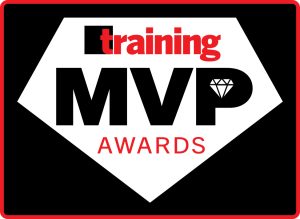Building systems solutions firm Limbach Holdings, Inc.’s Manager Advancement Program (MAP) covers the manager’s role and influence in the entirety of the employee experience— from recruitment and onboarding to development, promotion, retention, and offboarding. Participants of this program walk away with tools, resources, and templates to manage their team according to the “Company Way.”
Program Details
Offered twice a year, MAP is required within the first year of team management for all newly hired and newly promoted managers.
During the five-week program, managers participate in hands-on exercises that cover Limbach’s key policies and tools for each employee stage. Managers are trained to recognize and appreciate the individuality of their employees, coaching them to tailor their approach to each person’s unique preferences, whether it’s in giving feedback, building and managing a career path plan, or recognizing achievements.
Throughout the program, participants engage in exercises designed to deepen their awareness of their CliftonStrengths (Gallup), with a recurring activity that prompts them to reflect on and action-plan their strengths as managers. These reflections are shared in breakout rooms, fostering a collaborative learning environment during every virtual session.
During the recruitment and onboarding segment, MAP equips managers with tools and strategies to successfully integrate new hires with a company-standardized interview guide. Managers also are coached on building a robust 90-day plan to ensure new hires’ success.
In the development and promotion segment, the program introduces the concept of sponsorship, distinguishing it from traditional management. Managers learn how to navigate career planning conversations with a sponsor mentality, utilizing the company’s career path planning template and process, as well as a 9-box talent grid to align employees’ aspirations with the company’s future opportunities. Additionally, managers are trained in the Radical Candor Feedback framework, practicing direct, caring communication through scenarios and drafting actionable feedback.
The final segment of MAP focuses on retention and offboarding. This includes setting clear expectations for performance reviews, identifying the qualities of an effective review, and aligning these with employees’ perceptions of success. The segment concludes with a comprehensive overview of the exit interview process and checklist.
In addition to the core program elements, a capstone project extends learning into a practice. Managers complete two critical tasks: Team 9-box grid Mapping + Action Planning, and Vision/Traction Organizer (VTO) Development that is unique to their team. The 9 box is shared with the local business partner for use and support of the leader as they create action plans for each team member. The VTO outlines their team’s niche, strengths, 10-year goals, 3-year goals, and 1-year plan. After the program completes, managers present this VTO to their leader for feedback. Once participants receive approval from their leaders, they submit their completed action plans to the Talent Development team, which conducts a follow-up check-in six months after the program’s completion to measure the progress and impact of the action plans.
Before the program begins, Limbach administers a pre-assessment to the managers of the participants, establishing a baseline of their current skills and knowledge. Participants also complete a self-assessment to capture their self-perception on the items their managers evaluated. Three months after the program concludes, Limbach conducts a post-assessment with the managers of the participants to measure the participants’ growth and improvement in the targeted areas.
At the conclusion of the final session, participants complete an immediate survey to provide feedback on the course. Limbach sends out a follow-up survey three months later to measure the longer-term effectiveness of the training and its application in the workplace.
Managers are enrolled in ongoing, reinforcement training that occurs virtually for one hour every other month. The topics in these virtual sessions build on what the manager has been trained to know and do in the Manager Advancement Program.
Limbach also holds open seats in each MAP cohort for managers who would like a refresher on the topics covered, filling about half of these seats with interested participants each time.
Results
Limbach saw a 10.1 percent decrease in attrition debriefs for the number of times that “my manager” is cited as the reason for leaving the organization (for those who had managers go through MAP). Overall attrition was below 17 percent.




